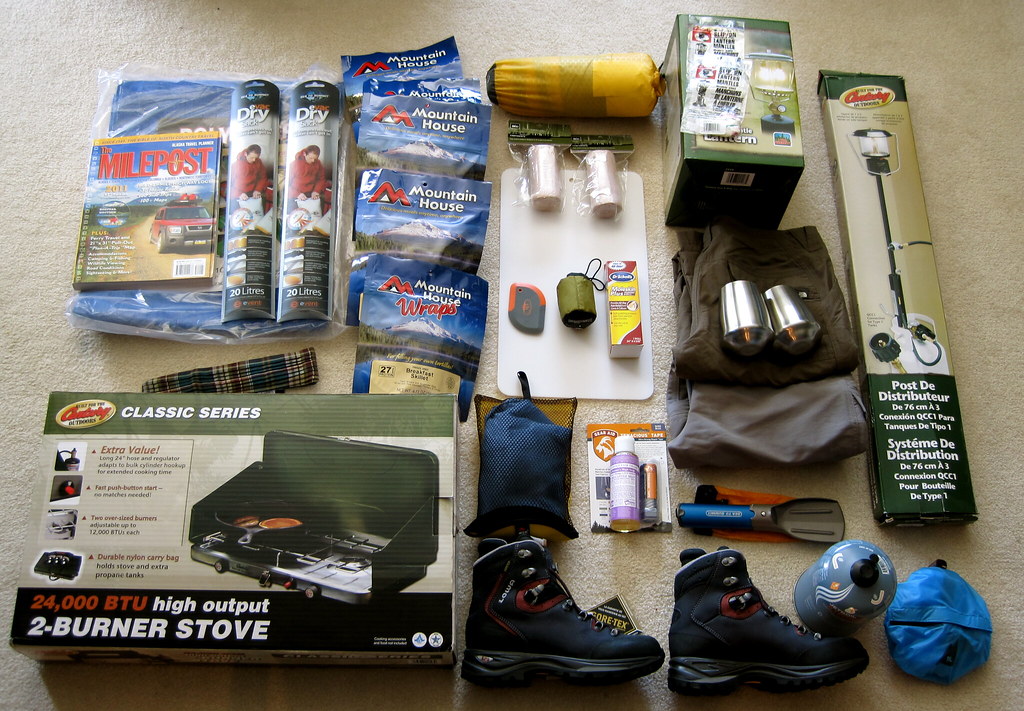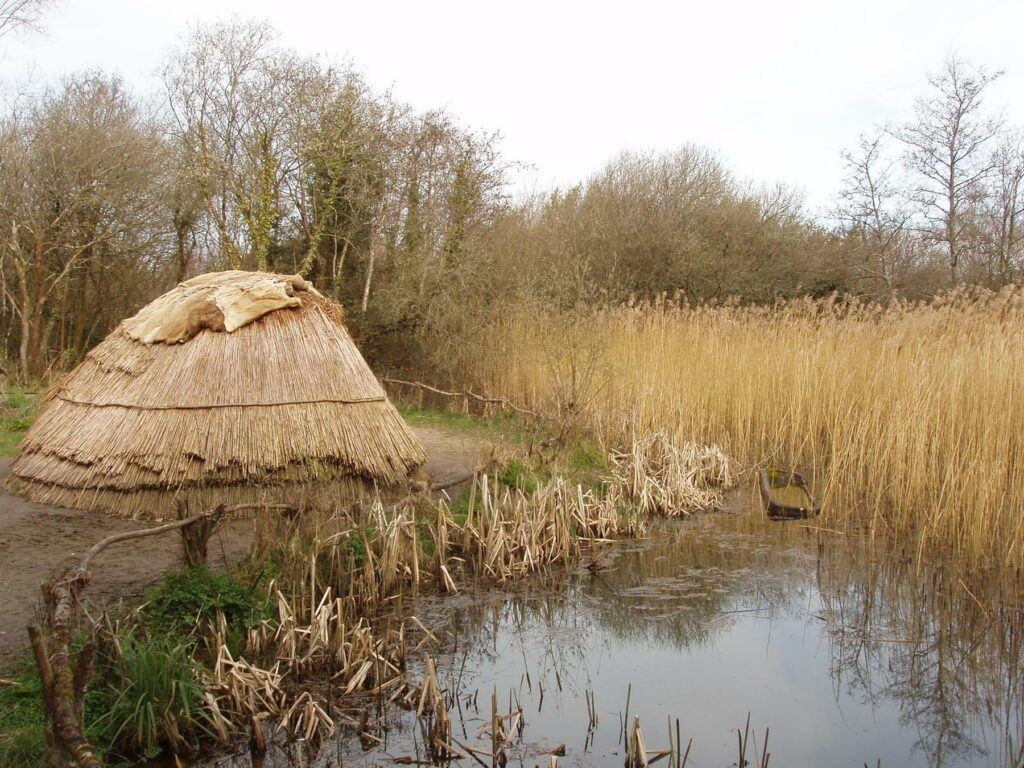Plan Before You Go: Tips for Pre-Trip Preparation
Before you set off on your camping adventure, it’s important to do some pre-trip planning. Here are some tips to ensure that you’re well-prepared for your trip:
- Check the weather forecast: Before you set off on your camping adventure, make sure to check the weather forecast for the area you’ll be camping in. This will help you pack appropriate clothing and gear for the conditions you’re likely to encounter.
- Research the location and accessibility options: It’s important to research the location you’ll be camping in before you go. This will help you understand the terrain, facilities, and other important details that will affect your trip. You should also look into accessibility options if you have any special needs or requirements.
- Plan your meals and bring extra essential items: It’s important to plan your meals for your camping trip and bring plenty of food and snacks. You should also bring extra essential items like first aid supplies, water, and toiletries.
- Check your limitations and trauma before embarking on a camping trip: Camping can be physically and emotionally challenging, so it’s important to check your limitations and trauma before you go. Make sure you’re physically fit enough to handle the activities you’ll be doing, and be aware of any emotional or mental health issues that may affect your trip. If you have any concerns, talk to your doctor or mental health professional before you go.

Essential Camping Gear: What You Need to Pack
When it comes to camping, having the right gear can make all the difference. According to REI, here’s what you need to pack for your next camping trip:
- Tent, sleeping bag, and sleeping pad: Your tent, sleeping bag, and sleeping pad are some of the most important pieces of gear you’ll need for your camping trip. Make sure to choose a tent that’s appropriate for the number of people in your group, and that it’s weather-resistant and easy to set up. Your sleeping bag should be rated for the temperatures you’ll encounter, and your sleeping pad should be comfortable and provide insulation from the ground.
- Lighting, stove, cooler, pots, plates, cups, and sporks: You’ll also need lighting, a stove, a cooler, and cookware for your camping trip. According to REI, a headlamp or flashlight is essential for navigating your campsite at night, and a camp stove and fuel will allow you to cook hot meals. A cooler will keep your food and drinks cold, and you’ll need pots, plates, cups, and sporks for eating.
- Appropriate clothes for cold and rain: Make sure to pack appropriate clothing for the weather conditions you’ll encounter on your camping trip. This may include rain gear, warm layers, and sturdy footwear. According to REI, it’s important to bring clothes that can get dirty and to dress in layers.
- Toiletries and personal hygiene items: You’ll also need to pack toiletries and personal hygiene items for your camping trip. According to REI, this may include soap, toothbrushes and toothpaste, toilet paper, and hand sanitizer. Don’t forget any prescription medications you need, and make sure to pack a first aid kit with essentials like band-aids and antiseptic.
Choosing Your Campsite: Tips for Finding the Perfect Spot
Choosing the right campsite can make or break your camping trip. Here are some tips for finding the perfect spot:
- Research campsites ahead of time: Before you set off on your camping trip, research campsites in the area you’ll be visiting. According to KOA, there are many resources available online that can help you find campgrounds and RV parks, including government websites and camping directories.
- Consider the location: When choosing a campsite, consider the location of the site. Do you want a site that’s close to the trailhead, or do you prefer one that’s more secluded? According to the National Park Service, you should also consider the terrain of the site and whether it’s suitable for your camping equipment.
- Check the amenities: Make sure to check the amenities available at the campsite before you book your stay. According to KOA, some campsites offer amenities like showers, laundry facilities, and swimming pools, while others may be more primitive.
- Look for a level site: When setting up your tent, it’s important to choose a level site. According to Family Handyman, a level site will ensure that you’re comfortable while you sleep and that your tent doesn’t sag or collapse.
- Consider the weather: Finally, make sure to consider the weather when choosing your campsite. According to NPR, you should choose a site that’s protected from wind and rain, and that has access to shade during hot weather. You should also be aware of the risks of flash floods, thunderstorms, and other weather events, and be prepared to evacuate if necessary.
Meal Planning: Tips for Delicious and Easy Campfire Cooking
Cooking over a campfire is one of the most enjoyable parts of camping. Here are some tips for meal planning and campfire cooking:
- Plan ahead: Before you head out on your camping trip, plan your meals in advance. According to REI, this will help you avoid over-packing and ensure that you have all the ingredients you need for each meal.
- Prep ahead of time: To make campfire cooking easier, prep your meals ahead of time. According to KOA, you can chop vegetables, marinate meats, and prepare casseroles at home before you leave. This will help save time and ensure that your meals are delicious.
- Bring the right equipment: When cooking over a campfire, it’s important to bring the right equipment. According to Family Handyman, you’ll need a camp stove, cooking utensils, and a cooler to keep your food fresh. You may also want to bring a Dutch oven or a cast iron skillet for cooking over the fire.
- Choose campfire-friendly meals: When planning your meals, choose recipes that are easy to cook over a campfire. According to KOA, some good options include foil-wrapped meals, one-pot meals, and skewers. You can also prepare meals like chili, soup, and pasta ahead of time and reheat them over the fire.
- Pack snacks: Don’t forget to pack snacks for your camping trip. According to REI, you’ll need energy to fuel your outdoor activities, so pack snacks like trail mix, energy bars, and fruit.
By following these tips, you can ensure that your campfire meals are delicious and easy to prepare.
Leave No Trace: Tips for Being a Responsible Camper
Camping in the great outdoors comes with a responsibility to keep our natural spaces clean and healthy. Here are some tips for being a responsible camper:
- Pack it in, pack it out: When you’re camping, make sure to pack out everything you bring in. According to the National Park Service, this means packing out all of your trash, food scraps, and litter. You should also bring a trash bag with you to dispose of your waste properly.
- Respect wildlife: When camping, it’s important to respect the wildlife around you. According to NPR, you should never feed the wildlife or approach them too closely. You should also store your food securely to prevent animals from getting into it.
- Be mindful of noise: When camping, be mindful of your noise levels. According to KOA, you should keep your voices down and avoid loud music or other noise that may disturb other campers.
- Respect campsite boundaries: When camping, make sure to respect the boundaries of your campsite. According to REI, this means not cutting down trees or disturbing the natural environment. You should also avoid walking through other campsites and respect your neighbors’ privacy.
- Practice fire safety: When building a fire, make sure to follow fire safety guidelines. According to Family Handyman, you should use established fire pits whenever possible and keep a bucket of water nearby in case of emergencies. You should also make sure to fully extinguish your fire before leaving your campsite.
By following these tips, you can be a responsible camper and help preserve our natural spaces for future generations.

Ready to Go Camping?
Now that you have learned the basics of how to camping, you’re ready to plan your next outdoor adventure. Remember to choose a suitable campsite, prepare your meals ahead of time, and be a responsible camper by practicing Leave No Trace principles.
At Camping Gear Pro, we have a wide range of camping gear to help you make the most of your camping trip. From tents and sleeping bags to cooking equipment and hiking gear, we have everything you need for a successful outdoor adventure.
Check out our online store to find the perfect gear for your next camping trip. And don’t forget to subscribe to our newsletter for more great tips and tricks for outdoor enthusiasts like you!
Frequently Asked Questions
Q.Who can go camping?
A.Anyone can go camping! Camping is a great way to enjoy the outdoors and connect with nature.
Q.What do I need to go camping?
A.To go camping, you’ll need basic camping gear like a tent, sleeping bag, and cooking equipment. Check out our camping essentials checklist for more ideas.
Q.How do I choose a campsite?
A.When choosing a campsite, consider factors like accessibility, amenities, and scenery. Check out our guide to choosing the perfect campsite for more tips.
Q.What if I’ve never been camping before?
A.If you’ve never been camping before, don’t worry! Check out our beginner’s guide to camping for tips and advice on how to get started.
Q.How can I cook over a campfire?
A.To cook over a campfire, you’ll need the right equipment and some basic cooking skills. Check out our tips for campfire cooking for more ideas.
Q.What do I do with my trash while camping?
A.It’s important to pack out everything you bring in when camping. Make sure to bring a trash bag and dispose of your waste properly to keep our natural spaces clean and healthy.

